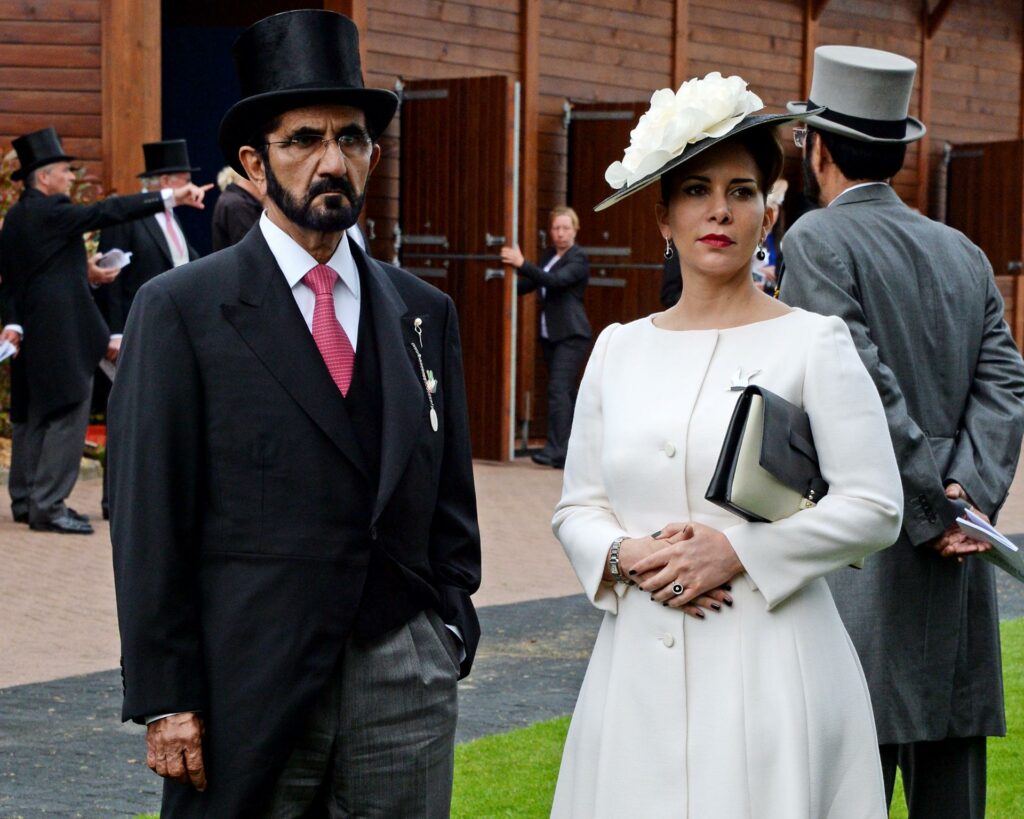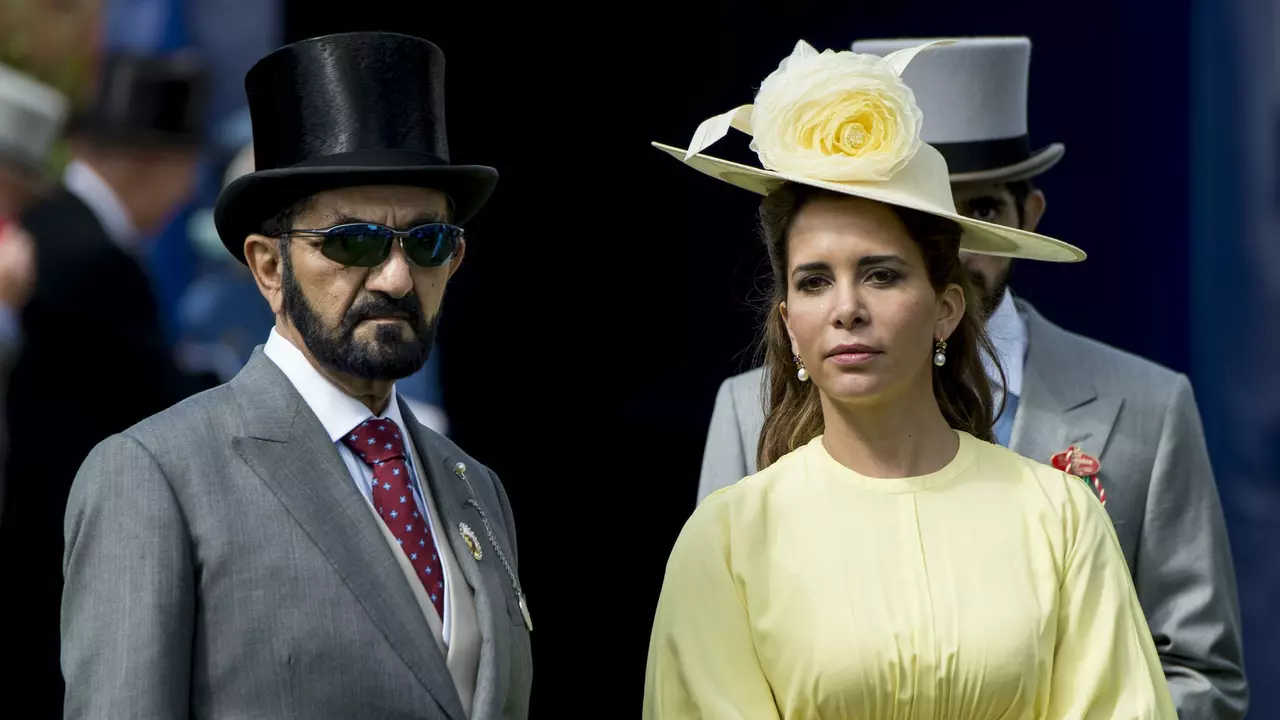Owen Slot, The Times
June 3, 2022
No one seems to know if Sheikh Mohammed is going to attend the Cazoo Derby at Epsom. The race has certainly been good to him: he has had the Derby winner in two of the past four years. He has three runners, one of which, Nations Pride, is third-favourite. All that is certain is that if he does turn up, no one is going to stop him. And you can be equally sure that no one is going to talk about it.
This is the omerta of racing, the sport’s embarrassment, its terrible silence — because on the one hand, Mohammed is the most powerful player and the most successful owner in British Flat racing, but on the other, if you follow recent legal cases, he shouldn’t be allowed to own a single racehorse, let alone three Derby runners.
When you ask the Jockey Club whether Mohammed should be welcomed at the Derby, it defers to the British Horseracing Authority (BHA). The BHA, in turn, is quite clear on this in its published Ownership Guidance Notes. These state that “the BHA must be satisfied that the applicant is suitable to be registered ”. Under this suitability guide is a section entitled “Honesty and Integrity”, the first point of which is “whether the applicant has been convicted of any criminal offence in Great Britain”.
If Mohammed did not have sovereign immunity, he probably would have been. We can say this because two years ago, the High Court in the UK found that on the balance of probabilities, he was responsible for the abduction of two of his own daughters.
No matter, the BHA also determines suitability according to whether “the applicant has been the subject of any adverse finding by a judge in any civil proceedings”. Well, how long have you got?
This has come to a head for this year’s Flat racing season because, in March, the High Court finally settled the long-running dispute between Mohammed and Princess Haya Bint al-Hussein, the youngest of his six wives. Sir Andrew McFarlane, the president of the family division, found that Mohammed had conducted a “campaign of fear, intimidation and harassment” against her and “domestic abuse” which was “conducted on a scale which is entirely outside the ordinary circumstances of cases heard in the family court”.
The details include phone-hacking and writing poetry which contained death threats. On at least two occasions, Princess Haya found a gun on her bed with the safety catch off.
The BHA could, if it chose, act on its broader interpretation of suitability because there is plenty of legal detail here. Cambridgeshire police did investigate the abduction of Princess Shamsa, one of Mohammed’s daughters, in July 2000 but hit a dead end when it was blocked from Dubai.

Princess Latifa, Shamsa’s younger sister, attempted to flee Dubai in 2018 but was seized from a boat by Indian commandos off the coast of Goa, drugged and then returned to Dubai.
A United Nations panel ruled last year that Latifa was handed over between India and Dubai in a “de facto swap” for a businessman accused of bribery in India. Does that sound like a suitable owner? If the jury is still out, the secret recordings of Latifa, made after her abduction from the boat, which were shown in a Panorama investigation last year, are quite chilling. “I am in a villa,” she says. “I am hostage. The villa has been converted into a jail. All the windows are barred. Every day I am worried about my safety and my life.” And so it goes.
On it goes with racing, too. Mohammed’s racing empire — Godolphin — earned a one-two in the 2,000 Guineas in April, the first classic of the Flat season. At this early point in the campaign Mohammed is, by some distance, leading the Owners’ Championship.
The top five in those standings make for interesting reading. In second is Shadwell Estate, which is the racing arm of Mohammed’s brother, Hamdan, who died in March last year, and in fifth Ahmed Al Maktoum, another family member.
Over four decades, the family’s dominance has been incredible. Mohammed was the top owner first in 1985, which started a winning streak where he — or Godolphin, which is the same thing — won 12 times in 15 years, the other three winners being his brother Hamdan.
Since 1985, only four people other than Mohammed and Hamdan have been champion owner, and one of those was Princess Haya. That doesn’t really count, because as another judge declared in the Mohammed divorce settlement: “The racehorses were clearly not owned by HRH [Haya]. They were simply run in her colours.”
In other words the family, led by Mohammed, have been for a long time by far the greatest investors in British racing. The extent of their investment in and ownership of Newmarket, British racing’s capital city, is considerable. They employ thousands of people.
Why the omerta around Mohammed? Because he is a foundation stone of the British racing industry, and no one wants to see what would happen if you pulled it away. Even aside from kidnappings and domestic abuse, this is an uncomfortable reality that racing needs to confront. Mohammed is 72; what happens when he is no more?
However if, as it appears, Mohammed does not pass the suitable owners’ test, British racing should not be waiting — it should be confronting this now. Yet the sum of his censure after these court cases are the noises that the Queen, who has accepted racehorses as gifts from him before, will no longer welcome him in the Royal Box at Ascot nor share the royal procession with him in her carriage.
The problem, of course, is that racing would be crippling itself if it did choose to freeze out Mohammed and Godolphin. But it goes further than that.
Last year the BHA made a statement in which “concern” was shared about the Panorama revelations. It also stated that the BHA had been in contact with the government about the situation, saying: “We cannot discuss contact with the government further and we are not going to confirm whether we are or are not taking any action.”
That was 16 months ago. When asked by The Times about Mohammed, the BHA said that the situation had not changed.
The point is that Mohammed is more than a racehorse owner — he is prime minister and vice-president of the United Arab Emirates. When the Duke of Cambridge made an official visit to Dubai in February, one of his hosts was one of Mohammed’s sons.
This, therefore, is in part a story of the establishment, and in part about the sport’s self-preservation. There are, you hope, very few people found by a civil court to have kidnapped and abused who would get to win the Derby, but, on Saturday, Sheikh Mohammed may be one of them.
